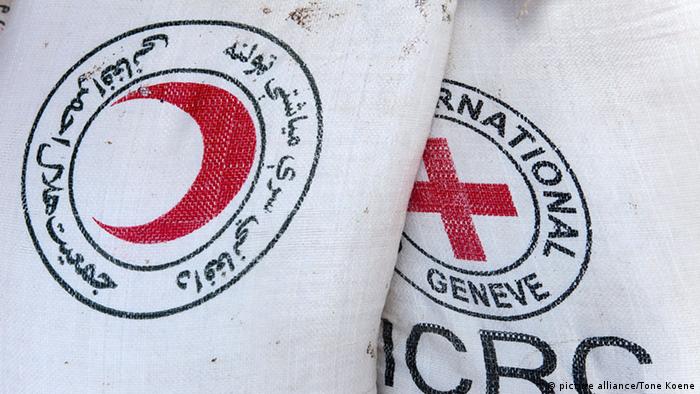Ivan Eland
Being a superpower has its drawbacks. One of them is being manipulated by smaller countries that know that American wants to be "Big Man on Campus" in the world, usually giving its taxpayers only vague "influence" around the globe for all the money they pour into military power and foreign aid. However, sophisticated countries usually flatter the musclebound purveyor of military power, labeling it the "indispensable nation," without which the world would fall into chaos and ruin. These wily countries also normally at least make some attempt to justify U.S. armed intervention into a particular problem in their region in terms of being required for American security, as well as their own. In other words, they try to argue that it also would be in the American interest to solve their problem. But not Turkey.
Turkey's President Recep Tayyip Erdogan, not known for his humble governing style, is issuing blunt demands for him to allow the United States to use the Turkish Incirlik air base to essentially help defend Turkey from the Islamic State of Iraq and Syria (ISIS), a radical army that has taken over the Sunni parts of neighboring Iraq and Syria. In fact, Erdogan has gone farther, aiming his invective against the United States by saying that he was "against impertinence, recklessness and endless demands" emanating from "12,000 kilometers away." In the normal world of "diplospeak," allies rarely speak to each other in these hostile terms.
Furthermore, contrary to popular belief in the United States, stoked by recent alarmist statements from the FBI, ISIS is primarily an army that operates in the open and is a threat to those in the Middle East region, rather than being a secretive terrorist group, such as al Qaeda in the Arabian Peninsula, whose bomb-making ability and networks of operatives in the West make it a wider threat.
And what does Turkey want in return for U.S. access to the Incirlik base from which to bomb ISIS in Iraq and Syria? Turkey wants the United States to create a no-fly zone on the Turkish-Syrian border, ostensibly to protect Syrian war refugees. Yet ISIS is not known for having a vaunted air force. What creating such a no-fly zone is likely to do is to bring the United States into conflict with the air force of Syria's ruler, Bashar al-Assad. Establishing a no-fly zone over Syrian territory would likely deny the Syrian air force access to its own airspace and might require the United States to suppress Syria's air defenses by force. And that's what Turkey really wants: Its American big buddy to put out more of an effort to get rid of Assad.
Turkey and Assad used to be friends, but then Turkey decided it would like to get rid of Assad. It began allowing anti-Syrian guerrilla fighters to cross its borders to battle Assad in the still ongoing Syrian civil war. Some of the fighters that Turkey supported were radical Islamists, such as those of ISIS.
So the United States is in the absurd situation of essentially bribing Turkey to be permitted to defend it from both radical ISIS and hostile Syria, both threats of its own making. Who needs enemies when you have allies like this?! This episode is even worse than the United States begging close ally Saudi Arabia to be allowed to defend it in Desert Shield/Desert Storm in 1990-1991 after Saddam Hussein had invaded neighboring Kuwait.
Because although ISIS has done gruesome beheadings of a few hostages in retaliation for U.S. airstrikes against the group, beheadings have occurred elsewhere in the world without the United States escalating a war there -- for example, by the group Boko Haram in Nigeria and routinely by the U.S.-friendly government of Saudi Arabia. Also, funding for Sunni Islamist radical groups, such as ISIS, has flowed from the Saudi kingdom into Syria's civil war.
Thus, the U.S. government should not exaggerate the threat to the United States from ISIS and once again get distracted from the bigger threat of al Qaeda and some of its related affiliates--as it did previously when George W. Bush got diverted from al Qaeda after 9/11 and caused many of the current problems in the region by conducting an unrelated invasion and occupation of Iraq.
Getting back into the unsolvable internecine conflict in Iraq and getting into the same in Syria are bad ideas. Despite the new Shi'i leadership in Iraq, government forces are still ethnically cleansing Sunni areas in that country. These ethno-sectarian divisions will be insurmountable unless governance in Iraq is decentralized, so that the Sunni Arabs and Kurds no longer fear the powerful Shi'i central government. If given more autonomy to govern themselves, the Sunni Arab tribes would be more likely to overthrow the brutal ISIS, which they now fear less than the oppressive Iraqi government. As for Syria, why not take a lesson from Bismarck and let parties unfriendly to the United States fight it out amongst themselves -- ISIS and al-Nusra, the al Qaeda affiliate in Syria, against the authoritarian Assad government.
If the United States would resist getting more involved in the Iraqi and Syrian civil wars, it could then tell Turkey to "go fish" and defend itself. The arrogant Erdogan would be flummoxed at the abnormal astuteness of a musclebound, but usually kind of dim, U.S. government.





 Rajab flashes victory sign as he leaves court in November (AFP)
Rajab flashes victory sign as he leaves court in November (AFP)







